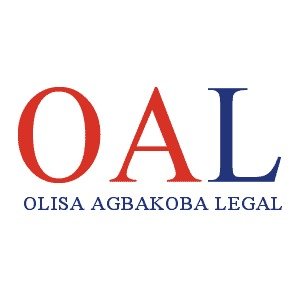Best Sanctions & Export Controls Lawyers in Apapa
Share your needs with us, get contacted by law firms.
Free. Takes 2 min.
List of the best lawyers in Apapa, Nigeria
About Sanctions & Export Controls Law in Apapa, Nigeria
Sanctions and export controls are key components of international trade law that regulate the flow of goods, technology, and services across national borders. In Apapa, Nigeria's largest seaport hub, these laws are especially vital due to the region's role in the import and export of goods. Sanctions are legal measures that restrict or prohibit trade with specific countries, entities, or individuals. Export controls regulate the transfer of certain goods, technology, or information out of Nigeria. The overarching goal is to protect Nigeria's national security, comply with international obligations, and prevent unlawful activities such as smuggling, weapons proliferation, or terrorism financing. Adherence is mandatory for businesses and individuals involved in import or export activities in Apapa.
Why You May Need a Lawyer
Navigating sanctions and export control laws can be complex, particularly in a busy port environment like Apapa. If you are exporting goods, importing equipment, providing international services, or are subject to government inspections, you may require legal assistance. Typical situations where legal advice is needed include:
- Receiving notifications of potential violations or enforcement actions from agencies such as the Nigerian Customs Service
- Engaging in transactions with countries or individuals that may be under international sanctions
- Needing clarity on licensing requirements for export-controlled goods or dual-use items
- Responding to cargo seizures, detentions, or fines
- Negotiating with regulatory bodies or appealing administrative decisions
- Structuring contracts to ensure compliance with Nigerian and international sanctions laws
Consulting a lawyer ensures you understand your obligations, avoid costly penalties, and maintain smooth business operations within legal limits.
Local Laws Overview
Sanctions and export controls in Apapa are governed by a framework of Nigerian statutes and international agreements. Key legal instruments include the Nigerian Trade Act, Customs and Excise Management Act, Terrorism (Prevention) Act, and the Export Prohibition Act. Nigeria is also subject to international trade sanctions imposed by bodies such as the United Nations and African Union.
In Apapa, the Nigerian Customs Service enforces export control laws at ports, checking for restricted and prohibited items. The National Agency for Food and Drug Administration and Control (NAFDAC) restricts certain pharmaceuticals and food exports. Technology exports may require additional clearances or licenses. Non-compliance can result in seizures, revocation of licenses, financial penalties, or criminal prosecution. Entities must also ensure they do not transact with individuals or organizations listed on sanctions registers. Regular updates and due diligence are crucial as laws and lists may change rapidly.
Frequently Asked Questions
What are sanctions and export controls?
Sanctions are government-imposed restrictions primarily targeting trade with specific countries, organizations, or individuals. Export controls are legal measures that restrict or license the exportation of particular goods, technology, or services to foreign entities.
Who enforces sanctions and export controls in Apapa?
The Nigerian Customs Service is the principal enforcement agency. Other relevant bodies include the Central Bank of Nigeria, NAFDAC, and Ministry of Trade and Investment.
How do I know if a product is subject to export controls?
The government publishes lists of controlled goods and prohibited exports. Checking these lists or consulting with customs authorities or a lawyer can clarify if your product is restricted.
What is a dual-use item?
A dual-use item is a product, software, or technology that can be used for both civilian and military applications. Export of such items often requires special licenses.
Can my goods be detained or seized at the Apapa port?
Yes, if your shipment is suspected of violating sanctions or export control laws, customs officials can detain or seize goods pending investigation or legal action.
What happens if I violate export control regulations?
Violations can lead to fines, seizure of goods, revocation of export licenses, and possible criminal prosecution. Severe infractions may result in imprisonment.
Do sanctions only apply to goods?
No, sanctions can also restrict financial transactions, provision of services, and transfer of technology or data to targeted persons or countries.
Is legal advice necessary for routine exports?
While many routine exports may not require direct legal assistance, engaging a lawyer is advisable for complex transactions, new markets, or high-risk goods or destinations.
How often do sanctions lists or export controls change?
Sanctions and control lists are frequently updated in response to political events or international obligations, so regular monitoring is necessary to remain compliant.
What should I do if I am notified of a potential violation?
Seek immediate legal advice to understand the allegation, respond appropriately to authorities, and protect your interests during any investigation or proceedings.
Additional Resources
If you are seeking further information or assistance, you may find these resources useful:
- Nigerian Customs Service - Handles enforcement of customs, export controls, and sanctions at the ports
- Federal Ministry of Industry, Trade and Investment - Provides guidance on permissible exports and licensing
- Central Bank of Nigeria - Monitors and regulates cross-border financial transactions for sanctions compliance
- National Agency for Food and Drug Administration and Control (NAFDAC) - Oversees export controls on pharmaceuticals and food products
- Nigerian Export Promotion Council - Offers compliance training and resources for exporters
Next Steps
If you require legal assistance concerning sanctions or export controls in Apapa, consider the following steps:
- Gather all relevant documentation, including contracts, licenses, shipping records, and correspondence with regulatory bodies
- Identify and list your main concerns or questions to facilitate focused discussions with a legal professional
- Consult a lawyer experienced in Nigerian and international trade law to review your situation, interpret applicable laws, and recommend a course of action
- Stay updated on any changes in export control laws, sanctions lists, and enforcement practices relevant to your business
- Develop and maintain internal compliance programs to mitigate future risks
An experienced lawyer can help you navigate complex laws, represent your interests before authorities, and ensure your business operates within the legal framework in Apapa, Nigeria.
Lawzana helps you find the best lawyers and law firms in Apapa through a curated and pre-screened list of qualified legal professionals. Our platform offers rankings and detailed profiles of attorneys and law firms, allowing you to compare based on practice areas, including Sanctions & Export Controls, experience, and client feedback.
Each profile includes a description of the firm's areas of practice, client reviews, team members and partners, year of establishment, spoken languages, office locations, contact information, social media presence, and any published articles or resources. Most firms on our platform speak English and are experienced in both local and international legal matters.
Get a quote from top-rated law firms in Apapa, Nigeria — quickly, securely, and without unnecessary hassle.
Disclaimer:
The information provided on this page is for general informational purposes only and does not constitute legal advice. While we strive to ensure the accuracy and relevance of the content, legal information may change over time, and interpretations of the law can vary. You should always consult with a qualified legal professional for advice specific to your situation.
We disclaim all liability for actions taken or not taken based on the content of this page. If you believe any information is incorrect or outdated, please contact us, and we will review and update it where appropriate.










